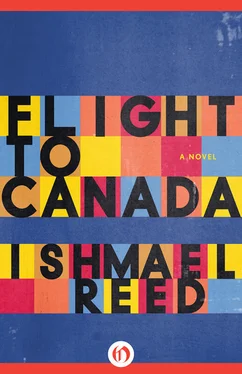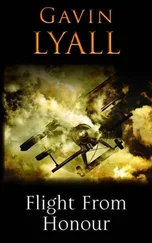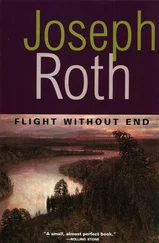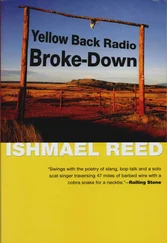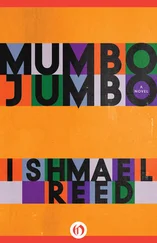Do the lords still talk? Do the lords still walk? Are they writing this book? Will they go out to Long Island and touch these men who were musing in the restaurant about the money they were going to make on the musical comedy Uncle Tom’s Cabin? Will they get the old mummy grip?
Harriet said that Byron was fucking his sister. She said that she’d gotten it from her friend Lady Byron, who she felt had been slandered by Countess Guiccioli, Byron’s last mistress and the tramp of the Tuilleries Gardens. Harriet accused Byron and his half-sister Augusta Leigh of sharing lustful embrace. Is that why Harriet, the spinster, referred to Lord Byron as a “brilliant seductive genius”? Watch what you put down on the page, Harriet. Did Harriet want to trade places with Augusta Leigh and transform Byron into her brother, Henry? History sure is complicated, or can you, like Stray Leechfield, cash your way out of history?
Why isn’t Edgar Allan Poe recognized as the principal biographer of that strange war? Fiction, you say? Where does fact begin and fiction leave off? Why does the perfectly rational, in its own time, often sound like mumbo-jumbo? Where did it leave off for Poe, prophet of a civilization buried alive, where, according to witnesses, people were often whipped for no reason. No reason? Will we ever know, since there are so few traces left of the civilization the planters called “the fairest civilization the sun ever shown upon,” and the slaves called “Satan’s Kingdom.” Poe got it all down. Poe says more in a few stories than all of the volumes by historians. Volumes about that war. The Civil War. The Spirit War. Douglass, Tubman and Bibb all believing in omens, consulting conjure and carrying unseen amulets on their persons. Lincoln, the American Christ, who died on Good Friday. Harriet saying that God wrote Uncle Tom’s Cabin. Which God? Some gods will mount any horse. Even the spinster schoolteacher crawling like an animal from the sightseeing bus toward an Umbanda temple with no a priori beliefs, as they say.
Dressed in white planter’s pants, white waistcoat and white shoes, Raven Quickskill dines alone at the end of a long white Virginia table.
He has just consumed a good old Southern meal of plum pudding, wild duck, oyster soup and Madeira wine, the kind of meal Kentucky generals used to sup at Jeff Davis’ “white house” in Montgomery before the South was reduced to corn bread and molasses. All of the boarders had left the Castle for the weekend. All fifty of them. Craftsmen from all over the South: blacksmiths, teachers, sculptors, writers. Uncle Robin had become exultant when Quickskill first made the suggestion. He hadn’t been able to figure his way out of his inheritance.
He and Judy traveled a lot. Now they were in the Ashanti Holy Land. Their last trip out they had brought back some serpents. They had given Quickskill the whole first floor of their Castle. It was airy and had big spacious rooms. Mountains, meadows, and the Atlantic Ocean could be seen through the windows. Quickskill would write Uncle Robin’s story in such a way that, using a process the old curers used, to lay hands on the story would be lethal to the thief. That way his Uncle Robin would have the protection that Uncle Tom (Josiah Henson) didn’t. (Or did he merely use another technique to avenge his story? Breathing life into Byron.)
Raven has the Richmond newspaper spread out in front of him. Princess Quaw Quaw has been arrested carrying a fifteen-foot balance pole, two American flags at each end, while walking on the steel cables of the Golden Gate Bridge. In the photo, crowds were hurling pellets at the officers for interfering with Quaw Quaw’s act. She was beginning to become an international event, and the media speculated about her every action. She was becoming the female Blondin, a characterization she resented. “Why don’t they call him the male Quaw Quaw Tralaralara?” she once protested in an interview.
This is not to say that she became a media bug. She insisted on her privacy and occasionally there were photos of her wandering about her husband’s yacht, nude, wearing sunglasses, as he docked off Trinidad, Majorca or Sausalito.
The note she had left Quickskill on the dresser of the Eagle Hotel had read merely, “Gone South,” with her signature scrawled underneath.
He had sent a note to her in care of her agent:
Dear Quaw Quaw Wherever or Whoever:
Maybe one day people of your class will realize that people of my class must grovel, worm and root our way through life fending off the bad birds so we’ve little time to take those we love under our wing. And that we become like mythical Goofus birds, invented by lumbermen I think, who fly backwards and build their nests upside down. We get smashed and our endings are swift.
And she wrote back:
Dear Raven:
And I thought our people were bad, worshipping Bears, Turtles, Ravens, Coyotes and Eagles, but your people worship any old thing or make an “object of reverence” of just about any “new things,” as in that HooDoo expression you once taught me, “Only Ghosts Hate New Things,” and then that morning I saw you, in our berth, on the steamer, Lake Erie mumbling before it, the typewriter was sitting there and seemed to be crouched like a black frog with white clatter for teeth. You thought I was asleep.
And it went on that way until one day she signed a letter “See you soon.” And that was that. She’d be back. She always came back. And they always had quarrels about “the human condition,” as her Columbia Professors would say.
“Flight to Canada” was the problem. It made him famous but had also tracked him down. It had pointed to where he, 40s and Stray Leechfield were hiding. It was their bloodhound, this poem “Flight to Canada.” It had tracked him down just as his name had. The name his mother gave him before she went away into the Fog Woman. It had dogged him. “Evil Dogs Us.” Yes, indeed. His poem flew just as his name had flown. Raven. A scavenger to some, a bringer of new light to others. The one who makes war against the Ganooks of this world. As quick on his opponents as a schooner on a slaver. “Flight to Canada” had given him enough mint to live on. “Flight to Canada” had taken him all the way to the White House, where he shook hands with Abe the Player, as history would call him.
He had never gotten along with Uncle Robin in slavery, but away from slavery they were the best of friends. He would try to live up to the confidence Robin had in him by writing a good book. “You put witchery on the word,” Robin said. He would try to put witchery on the word.
Uncle Robin had turned down an offer from Jewett and Company of Boston’s best-known writer and had put his story in the hands of Quickskill: “Now you be careful with my story,” Robin said. “Treat that story as precious as old Swille treated his whips.” They both knew what that meant.
Bangalang came into the room from the kitchen. She was about to leave to return to the Frederick Douglass Houses where she and her husband lived. His carriage was outside waiting for her.
“Is there anything else I can get for you?” she asked Quickskill.
“No,” he said, and then, “Bangalang?”
“Yes, Quickskill?”
She had gotten a little grey. They had all gotten a little grey.
“Do you hear from Mammy Barracuda and Cato the Graffado?”
“Last I heard, she sang before the last reunion of Confederate Soldiers. They—”
“What happened, Bangalang?” She’d begun to laugh.
“She sang a chorus from ‘Dixie.’ Well, I have to tell you when she got to those lines that go ‘Will run away — Missus took a decline, oh / Her face was de color of bacon-rine-oh!’, the old soldiers took Mammy on their shoulders and marched her out from the convention hall. Cato was leading the parade like a cheerleader, I’m telling you. Well, if you need something else, there’s an apple pie in the kitchen.” She turned and walked out.
Читать дальше
